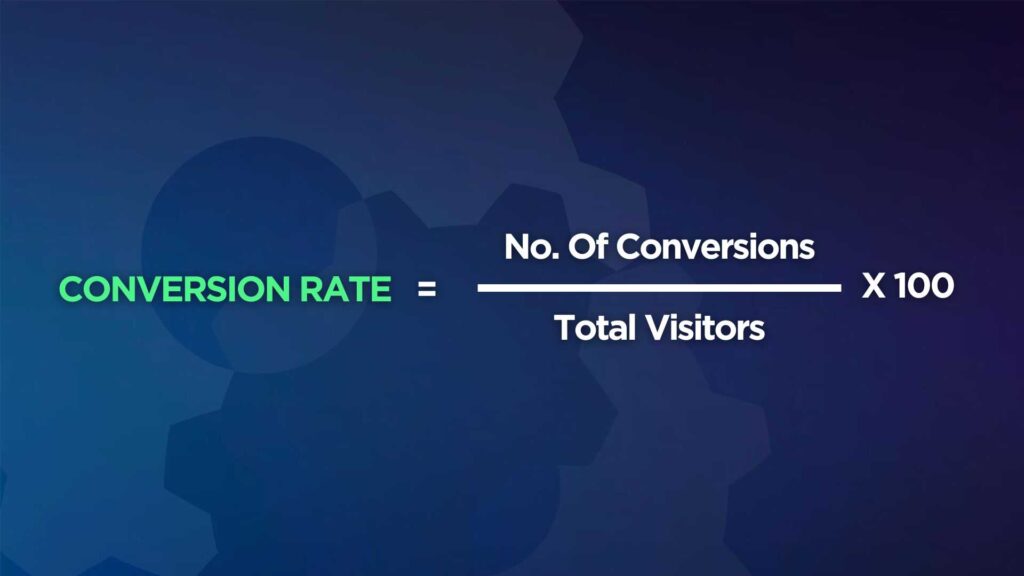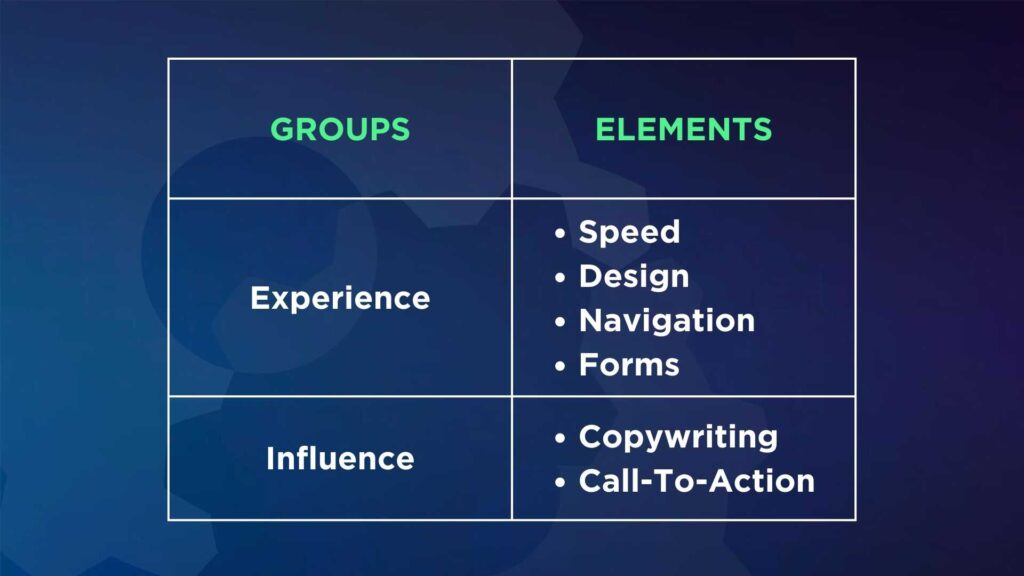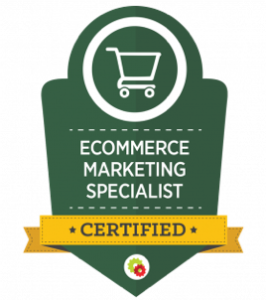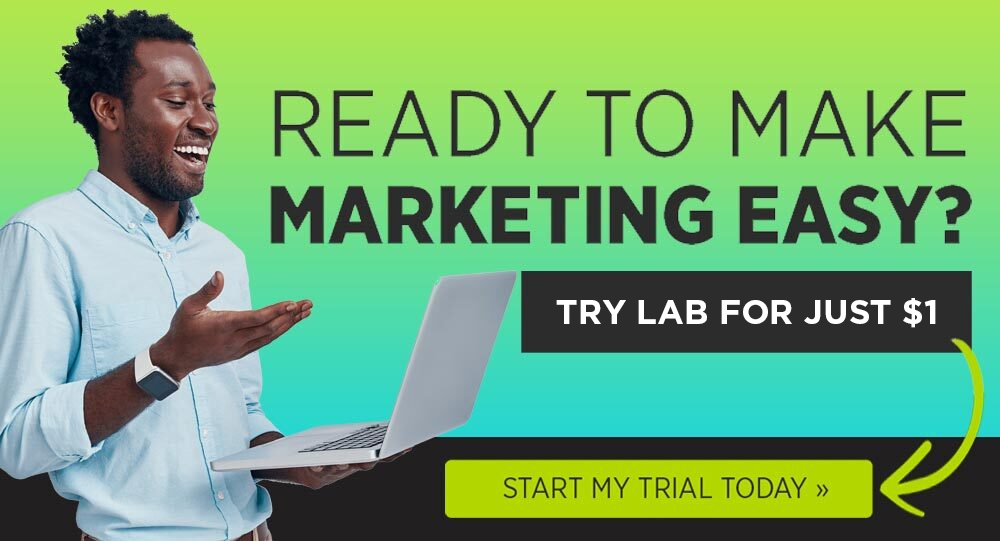

If you’re a store or website owner, one of your biggest goals is likely to increase customer conversions. After all, successful conversion rate optimization can make a world of difference when it comes to growing your business.
What if we say you can take your struggling to store to a successful one by just making some small tweaks?
Yes. There are plenty of proven tactics that can help you increase conversion rate of your store while also boosting profits. And no, you don’t need much technical experience for that.
In this comprehensive guide, we will outline everything from understanding Conversion Rate Optimization (CRO) to implementing easy-to-understand strategies that will take your store’s results up another level.
Ready? Let’s dive in!
What Is Conversion Rate?
Simply put, the conversion rate is the percentage of visitors to your website or store who take a desired action. It can be anything from signing up for a newsletter, making a purchase, sharing content, or downloading an app.
Most often, though, it’s used to measure how many people are actually buying something on your site.
Conversion rate is a good way to measure the success of your store. The higher the rate, the better it is for you in terms of sales and customer acquisition.
What Is A Good Conversion Rate?
The answer to this question depends on the industry you’re in, as well as factors such as:
- Traffic source
- Your Goals
- Audience profile
- Your Offer
- and a couple of other things
Generally speaking, though, a good conversion rate is anything above 2%.


However, remember that improving your conversion rate is always an ongoing process. If you have a decent conversion rate today, there might be room for improvement tomorrow. That’s why you should continuously track and analyze your data to fine-tune performance.
What Is Conversion Rate Optimization (CRO)?
Conversion rate optimization (also often called CRO Optimization) is the process of improving the performance of a website or store through measures that increase conversions.
In other words, it’s about identifying which elements on your site work best and which need to be improved. CRO can involve testing different design elements, making changes to the user experience, or even running campaigns with special offers and discounts.
The primary goal of CRO is to increase your store’s overall performance by improving customer satisfaction, increasing sales, and driving more traffic to the site. Doing so can make more money and improve your bottom line.
But how do you calculate the conversion rate?
How To Calculate Conversion Rate?
Calculating your conversion rate is fairly simple. All you have to do is take the total number of visitors to your website or store, divide it by the total number of conversions, and multiply by 100. The resulting figure will give you an idea of how effectively your store converts visitors into customers.


For example, if you had 1000 visitors to your site and 24 converted, your conversion rate would be 2.4%.
But remember that you need to define a conversion first. This could be a purchase, sign-up, or download — all of which can be tracked inside your Google Analytics dashboard.
Also, remember to associate your goal with the relevant page. For example, if your goal is to get newsletter sign-ups and the form is on the contact page or a product page, you will only count the website visitors on that specific page, not the home page or others.
That’s how you accurately calculate the conversion rate.
But why do businesses get crazy about conversion optimization? Why are conversion rates important?
What Are The Benefits Of Conversion Rate Optimization?
CRO optimization allows you to maximize the potential of every visitor who comes to your store. This means more sales, leads, and customers – all without spending a dime on advertising.
Besides the numbers, the conversion rate optimization process also helps you understand customers’ psychology. You get to know what motivates people on your site and which channels are the most effective at driving high-quality traffic.
This information can be invaluable when crafting your brand’s digital marketing strategy.
In addition, CRO also helps you identify opportunities to improve user experience, making visitors more likely to trust your brand and add to your website’s conversion rate.
Finally, conversion optimization allows you to maximize your profits, reduce costs, and increase customer satisfaction –what every brand desires!
Now that you understand what is conversion rate and how to calculate it, let’s walk you through the core elements of an effective CRO process.
The Science Of Ecommerce Conversion Optimization: 6 Critical Elements
The six elements of a successful CRO process can be grouped into two categories:


Here’s how each one of them affects your site’s conversion rate:
Website Speed
Let’s admit it. Slow websites are annoying. This is true to the point that website visitors almost immediately bounce off a page if it takes more than 3 seconds to load.
This not only impacts your conversion rate but also hurts your website’s SEO.
So, make sure your website loads in under 3 seconds, or be prepared to lose more and more prospects.
Design
Looks matter. A Lot!
If you have a professionally designed, eye-pleasing website and landing page, users will automatically feel welcomed and comfortable to navigate.
So, naturally, a good design will drive actions and add to the conversion rate.
Copywriting
The next thing site visitors notice on your product pages or landing pages are the “words.”
Users are more likely to spend time or take a desired action on your website if the copy speaks to their needs and desires.
So, hire an experienced and highly-skilled copywriter who knows how to research your target audience and write compelling copy.
Website Structure
This should be easy to understand.
When shopping online, people don’t stay on a single web page. They often like to check out different items and browse product pages.


Become A Certified E-Commerce Marketing Master
The Industry’s Most Comprehensive E-Commerce Marketing Certification For The Modern Marketer. Turn Products Into Profit, Browsers Into Buyers, & Past Purchasers Into Life-Long Customers.
This is where a decent website structure can aid in conversion.
If your website is easy-to-navigate, users are likely to stay on your website and move closer to a conversion.
On the other hand, if the structure is complex, they will most likely bounce off.
CTAs
Next up are your call-to-action buttons. Although they’re part of the website copy, they play a different role. While website copy influences decision-making, CTAs are often the key drivers behind conversion.
Words and phrases like “Order Now For Free Shipping,” “Access Now,” or “Contact Today For A Free Quote” have the power to influence people’s decisions and drive actions.
So, choose your CTAs wisely.
Forms
Finally, your website forms and their optimization are critical to the conversion rate.
If your web form is long (with unnecessary fields) or too complicated (requiring extra steps), it will negatively impact the conversion rate.
The idea is to keep them short, sweet, and simple.
These are some of the core elements of a successful CRO strategy that can help brands get more out of their digital marketing efforts.
Now that you know what makes a successful conversion funnel, here are a few tips to increase the conversion rate of your ecommerce site or store.
Conversion Rate Optimization Tips & Tricks
Tip 1 – Do Some Split testing or A/B testing
Split testing or A/B testing is often used to optimize the website and make it more conversion friendly.
It basically involves creating two versions of a web page with slight variations and testing them out on live audiences to see which one performs better.


Though you can test several things, it’s a nice idea to test variations of:
- Headlines
- Color themes
- Design elements (buttons, banners, etc.)
- Button placement
- Layout
- Website copy
- CTA
- Images
- Videos
However, make sure you don’t change several things together. Why?
Because it will make it almost impossible to figure out which change actually had an impact on the conversion rate.
So, don’t overdo the variations.
Tip 2 – Add A Site Search Feature
A search bar is a must-have for any website or store with plenty of products.
It helps users quickly find what they’re looking for and improves the on-site experience.
This was even confirmed by Forrester Research (a research and consulting company). It found that almost 43% of web users head straight to the search bar. Plus, it increases their chances of conversion by 2-3 times and helps prospects take action.
That’s one way how the search bar helps. But there’s another way.
You can analyze search queries to understand user behavior and tailor your website according to their preferences.
Tip 3 – Set Up Easy Forms
Remember the core elements of CRO optimization?
As already mentioned, forms play an important role when it comes to optimizing the conversion rate.
That’s why it’s important to create simple forms with minimum fields and help users get through the process effortlessly. Also, make sure you add helpful prompts or auto-fill features to reduce friction and expedite the process. These simple tweaks can make a world of difference.
You also need to apply the same logic when creating forms for lead generation or any other purpose. Keep them short and sweet.


Fact: “Using a quiz-like form to capture information has the potential to triple conversions.” (WPForms)
So, get creative with your forms to get more conversions. Use a quiz format, add a lead magnet, or incorporate a chatbot. They will help you get more prospects and conversions.
The idea is to make the process simple and engaging for users.
Tip 4 – Use Better CTAs
The CTAs you use on your website can be a game changer.
Good CTAs are clear and concise and should help users take the desired action without any confusion. How?
Well, you need to come up with CTAs that are:
- persuasive
- descriptive
- benefit-focused
Besides the above, effective CTAs usually invoke a sense of urgency or achievement. For instance, words like “Unlock” or “Get Exclusive Access” play with users’ psychology and make them feel rewarded. It creates a sense of exclusivity and often leads to higher conversions.
Similarly, phrases like “Order Now Before Stock Runs Out” or “Free Shipping For Next 10 Hours” trigger emotions of urgency and encourage prospects to take action quickly.
This is how you can leverage compelling copy to make your CTAs more effective and boost your conversion rates.
Plus, you can also try changing the following CTA elements:
- CTA type (Forms, text, button)
- Placement
- Button Shape
- Button Size
- Colors
Refer back to tip number 1 and do split testing to see what works better.
Tip 5 – Better User Experience
User experience plays a key role when it comes to CRO optimization. That’s why you must ensure your website or store provides a pleasant user experience.
How?


Think from a customer’s perspective – what would make your site more enjoyable for them?
Here are a couple of aspects to focus on:
Navigation: Make sure your website or store has an intuitive navigation system that makes it easy for users to find what they’re looking for.
Content: Create well-structured, organized, and informative content that is both easy to grasp and adds value. Make sure your content is tailored to the readers and resonates with them.
Layout: Design a website or store with clean lines and an organized layout that makes it easy to read and navigate.
Optimization: Optimize your website or store for speed, performance, and mobile devices.
By addressing all the above, you can enhance the user experience and increase conversions.
So, focus on enhancing the user experience to get more sales and leads from your website or store.
Tip 6 – Use Heat Maps For User Testing
A heat map is a powerful tool that helps you determine where users click on your web pages.
For instance, heat maps show which sections or elements of your website or store are getting the most attention and which ones are being neglected.
Yes. You can actually find out if users are paying attention to the navigation bar, CTA buttons, or links that you have carefully placed on your website. Some tools even have an eye-tracking integration to tell you where users look first when they land on your ecommerce website.
This can give you greater insights into user behavior and help you identify:
- effective website sections,
- improvement opportunities,
- and, potential issues and problems.
Overall, heat maps are excellent for ecommerce conversion optimization as they help you understand what elements of your store need more focus and attention.
Tip 7 – Add Pop-ups
Pop-ups are great for boosting conversions. They help you capture customer information such as email address, name, phone number, and more.
You can use pop-ups for a variety of purposes, such as:
- Offering discounts or coupons,
- Inviting people to join a newsletter,
- Introducing new products or services,
- Collecting feedback and ratings,
- Showing important notifications.
Pop-ups are also extremely effective in retargeting customers. You can use them to show special offers or discounts to customers who have already visited your website or store.


However, despite having an excellent conversion rate of 11.09%, you need to be careful when using pop-ups, as too many can annoy customers and drive them away. Also, they must have fast loading speeds and easy-to-spot exit options, otherwise, it could turn off the existing traffic and drive them away.
So, be cautious with pop-ups and use them right!
Tip 8 – Leverage Live Chat or Chatbots
Live chat is a great way to boost conversions. It enables potential customers to chat with you directly and get their queries answered in real time. This helps build trust and customer loyalty, which leads to more conversions.
But if you don’t have the resources for a live chat team, you can use chatbots instead. Chatbots are automated conversational AI systems that can answer frequently asked questions (FAQs) and help customers with their queries.
However, make sure you choose a chatbot that fits your budget, integrates well with your system, and aligns with your business goals.
So, these were some of the most effective conversion rate optimization strategies you can use to increase conversion rate of your store.
Besides the above, you can try:
- adding some social proof
- using targeted lead magnets
- enhancing the checkout experience
- focusing on abandoned carts
- using retargeting
These are all proven techniques that boost website conversion rates by turning website visitors into paying customers!
However, instead of relying only on tricks of the trade, developing strong ecommerce marketing concepts is highly recommended to get ahead in the commerce world.
Master The Fundamentals For Successful Ecommerce Conversion Optimization
While this guide will surely help you get started with your store’s CRO optimization, there’s much more to CRO than just tips and tricks.


Ecommerce success depends on understanding your target audience and developing a suitable marketing strategy for your store.
So, before starting your optimization efforts, you need to focus on the basics, like understanding the core pillars of ecommerce, creating customer avatars, and developing a sales-worthy offer. How can you learn this all?
Our Ecommerce Marketing Mastery Certificate offers advanced ecommerce marketing knowledge so that you start strong and optimize your store from the ground up.
Don’t have time on your hands? Consider hiring a specialized ecommerce agency to take care of ecommerce conversion optimization and marketing for you.
With the right knowledge, tools, and team, you’d be well on your way to building a profitable ecommerce business.
















